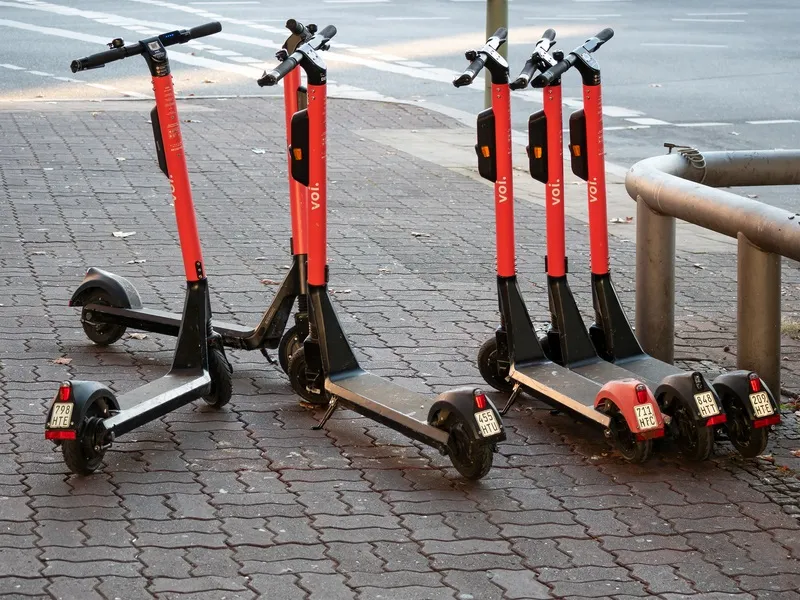New research by the Institute of Advanced Motorists (IAM) reveals the shocking extent to which drivers use their phones and tablets to take selfies, make video calls and watch videos while driving.
The findings come from research commissioned this month exclusively by the IAM, which asked 500 drivers how they use their smartphones and tablets in the car.
Results show that nine per cent of drivers admitted to taking a selfie while driving ‘in the last month’. This increases to 15 per cent of young driv
July 23, 2015
Read time: 3 mins
New research by the 6187 Institute of Advanced Motorists (IAM) reveals the shocking extent to which drivers use their phones and tablets to take selfies, make video calls and watch videos while driving.
The findings come from research commissioned this month exclusively by the IAM, which asked 500 drivers how they use their smartphones and tablets in the car.
Results show that nine per cent of drivers admitted to taking a selfie while driving ‘in the last month’. This increases to 15 per cent of young drivers aged 18-24 and 19 per cent of 25-35 year olds. Women are less selfie obsessed than men, with just five per cent of women citing they have taken a selfie while driving compared to 12 per cent of men.
Eight per cent of drivers admitted to driving while using a video-calling application such as FaceTime and Skype to make and receive video calls, rising to 16 per cent among 18 to 24 year olds.
An IAM study in 2012 showed that using a smartphone while driving is more dangerous than driving at the legal alcohol limit or when using cannabis. Drivers have much slower reaction times, difficulty staying in the same lane and are less able to adapt to even slowly changing circumstances.
IAM’s chief executive officer, Sarah Sillars said: “Everyone knows how dangerous using a smartphone or tablet is while driving. That’s why it’s shocking to see new trends like taking selfies and making video calls becoming common practice.
“Safe driving is everyone’s responsibility and more must be done to catch drivers using these devices dangerously by increasing the fines and points for smartphone and tablet use at the wheel – there is simply no excuse.
“Campaigns must also be introduced that raise awareness of the prevalence of the issue in society and make this behaviour socially unacceptable as drink-driving”.
Other findings include: Seven per cent of drivers admit to watching videos and stream catch-up television on the road, rising to 13 per cent of drivers aged 18-24 and 15 per cent of 25-32 year olds.
Eighteen per cent of drivers have accessed the internet using their smartphone or tablet, rising to 27 per cent of drivers aged 18-24 and 34 per cent of drivers aged 25-34.
Despite this, the number of drivers given penalty points for using a smartphone at the wheel fell by more than 40 per cent in 2014.
The findings come from research commissioned this month exclusively by the IAM, which asked 500 drivers how they use their smartphones and tablets in the car.
Results show that nine per cent of drivers admitted to taking a selfie while driving ‘in the last month’. This increases to 15 per cent of young drivers aged 18-24 and 19 per cent of 25-35 year olds. Women are less selfie obsessed than men, with just five per cent of women citing they have taken a selfie while driving compared to 12 per cent of men.
Eight per cent of drivers admitted to driving while using a video-calling application such as FaceTime and Skype to make and receive video calls, rising to 16 per cent among 18 to 24 year olds.
An IAM study in 2012 showed that using a smartphone while driving is more dangerous than driving at the legal alcohol limit or when using cannabis. Drivers have much slower reaction times, difficulty staying in the same lane and are less able to adapt to even slowly changing circumstances.
IAM’s chief executive officer, Sarah Sillars said: “Everyone knows how dangerous using a smartphone or tablet is while driving. That’s why it’s shocking to see new trends like taking selfies and making video calls becoming common practice.
“Safe driving is everyone’s responsibility and more must be done to catch drivers using these devices dangerously by increasing the fines and points for smartphone and tablet use at the wheel – there is simply no excuse.
“Campaigns must also be introduced that raise awareness of the prevalence of the issue in society and make this behaviour socially unacceptable as drink-driving”.
Other findings include: Seven per cent of drivers admit to watching videos and stream catch-up television on the road, rising to 13 per cent of drivers aged 18-24 and 15 per cent of 25-32 year olds.
Eighteen per cent of drivers have accessed the internet using their smartphone or tablet, rising to 27 per cent of drivers aged 18-24 and 34 per cent of drivers aged 25-34.
Despite this, the number of drivers given penalty points for using a smartphone at the wheel fell by more than 40 per cent in 2014.








